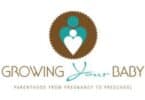 The popularity of organic products has surged in recent years, with major grocery chains dedicating sections of their stores to organic goods and health food stores appearing everywhere.
The popularity of organic products has surged in recent years, with major grocery chains dedicating sections of their stores to organic goods and health food stores appearing everywhere.
Organic farmers are prohibited from using synthetic pesticides or fertilizers. To be labeled as “organic,” products must be certified. This involves submitting an organic system plan annually and undergoing inspections of farm fields and processing facilities. Inspectors ensure that organic practices, such as responsible soil management, buffer zones between organic and conventional farms, and meticulous record-keeping, are being followed. Processing inspections cover cleaning and pest control methods, ingredient transportation and storage, as well as record-keeping and audit control.
In Canada, the organic industry has experienced substantial growth, with a 15 to 20% annual increase over the past decade. In 2004, there were approximately 3,670 certified organic farms.
The cost of organic food is higher compared to conventional alternatives because it more accurately reflects the actual expenses involved in growing the food. Instead of relying on chemicals, organic farming relies on labor and intensive management. The health and environmental costs of synthetic chemicals, such as water pollution and pesticide contamination, are borne by society. Organic food prices factor in costs related to cultivation, harvesting, transportation, and storage. Processed organic foods also incorporate expenses for processing and packaging. Regulations governing organic production are more stringent than those for conventional foods. The intensive management and labor required for organic farming are often more expensive than the chemicals commonly used on conventional farms.
Due to the higher cost, some families cannot afford to purchase all organic produce. However, EWG.org has compiled a list of the most contaminated produce. If purchasing all organic isn’t feasible, it is recommended to prioritize buying these items.
12 Most Contaminated: Buy These Organic
• Apples
• Bell Peppers
• Celery
• Cherries
• Imported Grapes
• Nectarines
• Peaches
• Pears
• Potatoes
• Red Raspberries
• Spinach
• Strawberries
12 Least Contaminated
• Asparagus
• Avocados
• Bananas
• Broccoli
• Cauliflower
• Corn (sweet)
• Kiwi
• Mangos
• Onions
• Papaya
• Pineapples
• Peas (sweet)
Environmental Working Group (ewg.org) has an extensive report on the pesticide level for all produce. It is definitely worth reading because we should all know which are good for our families and which are not.
SOURCE:www.ofrf.org




